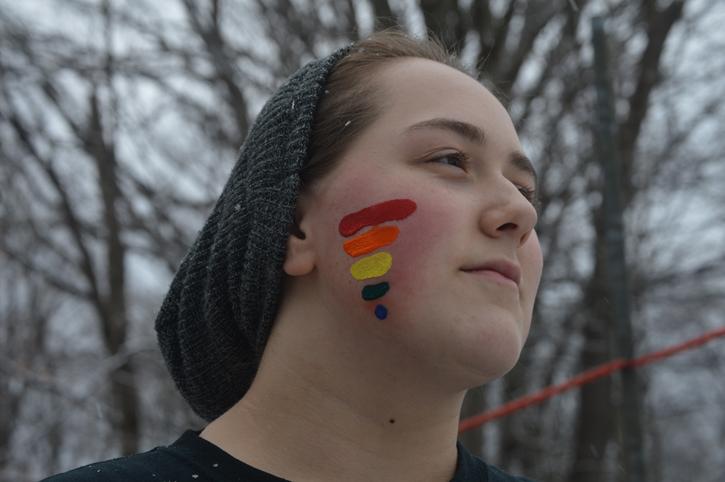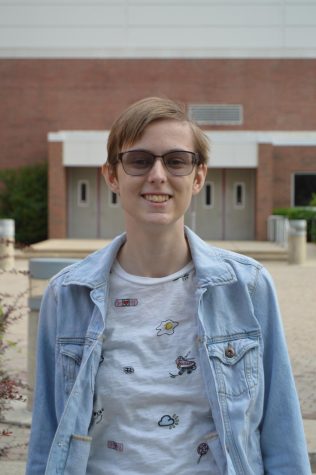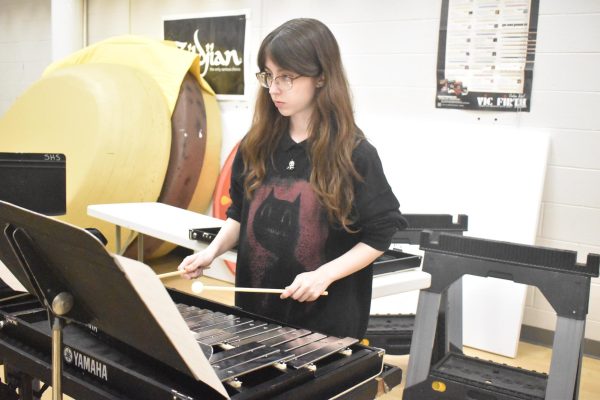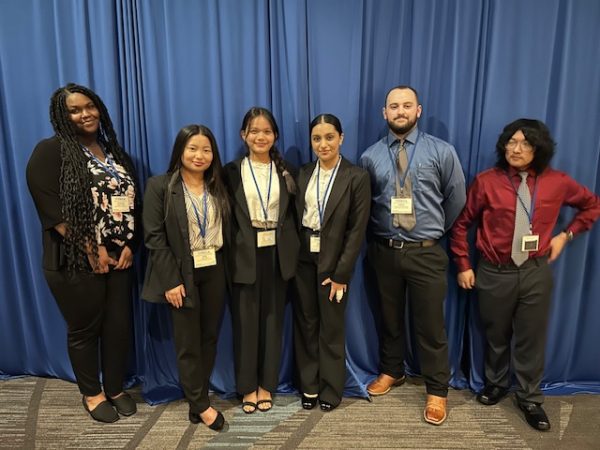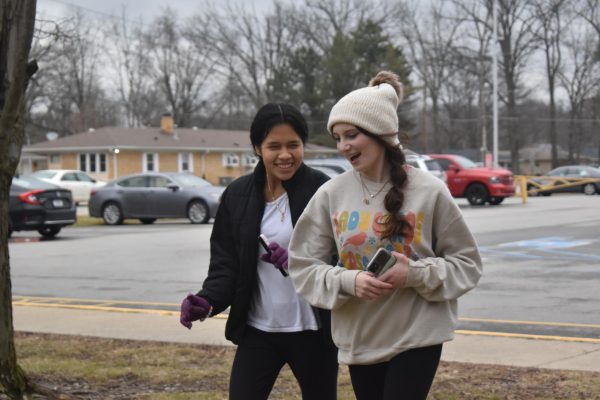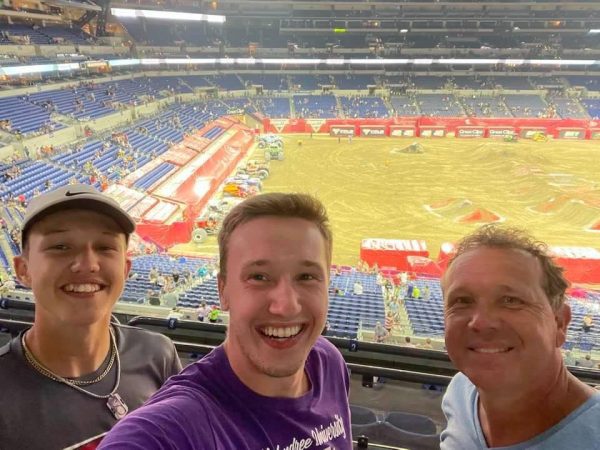Beyond the pride
Students weigh in on queer experience in the LGBT+ community
Junior Zella Napier identifies as nonbinary, meaning they do not feel as a certain gender fits them. Napier is involved in support groups and outreach groups for younger LGBT+ individuals.
March 16, 2017
As society has progressed over the past several years, there has been an emergence of people who identify as LGBT+, particularly among teens and adolescents. According to hrc.org, 90 percent LGBT+ youth have come out to their close friends and 64 percent are out to their classmates. However, stigmas continue to persist over those identities that do not fall under the lesbian and gay portion of the acronyms, many of which can be deemed as discriminatory.
Despite these stigmas, LGBT+ students at SHS, including senior Katie Johnson, remain proud of their queer identities.
Johnson identifies as bisexual, and for the most part is comfortable about her identity. Bisexuality is the attraction to two genders, most commonly men and women. A common stigma against bisexual individuals is that they have to choose between men or women, but Johnson doesn’t let this affect how she feels about herself.
“I feel like because I’ve come to terms with myself, especially now, (my identity is) really important to me,” Johnson said. “Now that I finally am comfortable with myself, I can let people know that it’s a normal thing.”
Johnson sometimes gets judged for how she identifies, particularly by her family who Johnson says isn’t very accepting of her. However, she gets support from her two best friends, who don’t give her trouble for it.
Sophomore Anthony Duncan also identifies as bisexual. He believes this is an important part of who he is and that it makes up a huge part of his identity.
“I love myself and who I am,” Duncan said. “Like if someone’s walking down the hall and they hear my voice they’re like ‘oh, there he is. That’s Anthony.’”
Duncan says he receives support from both his mother and his grandmother, and although he doesn’t personally feel that he’s judged for how he identifies, he believes that there should be more acceptance of the lesser-acknowledged or respected sexualities such as bisexuality.
Junior Danyelle Constant is another student who identifies as bisexual. She says that although it’s an important part of who she is, she doesn’t take it as seriously as others.
“I just kind of take it like everything else, take it pretty easily and laid back,” Constant said. “It’s me, take me as you will.”
Constant says she believes that there should be more acceptance and awareness of bisexuality and other identities, because advocating for LGBT+ rights means advocating for all of it, not just part of it. She has faced backlash for her identity before, but thinks that it is nothing to be ashamed of.
“It’s not a choice. It’s just one of the many characteristics and traits that people have,” Constant said.
Along with sexualities, different gender identities also face discrimination in everyday life. Junior Zella Napier identifies as nonbinary, an umbrella term for a spectrum of genders that don’t fall under strictly male or female. Napier also goes by they/them pronouns.
“You always get those people who are like, ‘but why?’” Napier said. “Can’t that just be the answer? Just ‘because?’”
Napier finds that being nonbinary is a comfort for them because it makes them feel more true to who they really are. They feel that nonbinary genders are often thrown under the radar and should be more accepted.
Napier is also involved with support groups and outreach groups for younger LGBT+ individuals. They receive their own support from their mother and close friends.
“I feel like people should be more respectful of people and their identities and what they choose to go by,” Napier said.
Senior Nadine Fish identifies as a demigirl, which falls under the nonbinary gender spectrum. Being a demigirl means that Fish feels like a girl some of the time, but not always.
“I’m pretty comfortable with my identity…,” Fish said. “I don’t face a lot of discrimination or erasure (in the LGBT+ community) I feel like.”
Fish says she began questioning her gender identity in high school and says she wasn’t comfortable having expectations as a female and being called ma’am or miss. She says she’s always been sort of a “tomboy” as well.
While Fish feels accepted in the LGBT community, she finds that people outside that community are generally not as accepting. Her mom, who bought Fish a chest binder, and her boyfriend have supported her through it all.
“I definitely think it’s important for people to realize there’s not only two genders,” Fish said. “Gender is a spectrum and that’s okay, and I think a lot of people are scared of that.”


